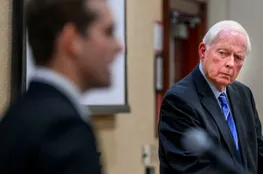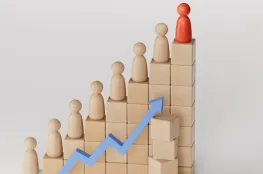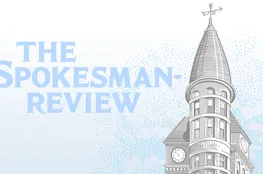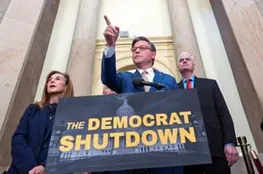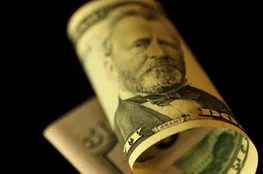Authored by Chris Macintosh via InternationalMan.com, let's begin with how society functions. Today, we find ourselves in a situation where the ostensible pillars of production are distinct from the actual pillars of production. Let me explain. The actual pillars of society, in terms of production, are agriculture, mining, fabrication, and transportation. These industries have benefited massively from technological advancements. Agriculture, for example, now uses harvesters instead of oxen. As a result, the actual number of people employed in agriculture continues to fall, which frees up time for people to engage in other activities like creating new inventions or pursuing the arts.
This reduction in labor needed for essential functions has led to a significant increase in individuals employed in 'the arts.' Many people prefer these jobs as they are more comfortable and less taxing physically and mentally. This development has resulted in a society drowning in comfort. Universities now offer degrees in liberal arts and gender studies, although the fundamental knowledge required is minimal. Each societal group acts like a gang. Kids who play football think they are better than those who play chess. Similarly, today's comfortable class advocates for mandates to force society to value them, leading to the exaltation of attributes previously accepted but not praised.
We are urged to respect a wide range of victim statuses, from physical appearance to intellectual shortcomings, transforming everyday inadequacies into reasons for societal value. These people have a significant impact because they vote. Their votes carry the same weight as those who truly contribute to society, such as farmers. The comfort class often fails to understand the connection between their comfortable world and reality. They view electricity as an inherent right yet oppose the coal and natural gas that generate it. This disconnection leads to actions like defacing artwork and disrupting society to end fossil fuel use.
This inability to grasp the bigger picture makes these individuals a menace to society, leading them to demand acceptance through violence if necessary. Historically, communists begin as a parasite class but resort to tyranny, disguised as compassion and equality. Our modern politics is merely the entertainment division of the military-industrial complex. The deep state influences everything, making voting an ineffective tool for change. Today's liberal class demands acceptance and will go to great lengths, including canceling or even harming dissenters, to achieve it.
Governments now threaten those who disagree online, exemplifying the rapid march toward totalitarianism. This is not just absurd - it's historically consistent. British financial policies and mass immigration strain the economy, driving wealthy individuals to leave. Projections indicate that the UK’s tax burden will surpass the threshold at which revolutions historically occur. Acknowledging the problem is the first step toward a solution. Technological advancements can still liberate us, but awareness is critical.
The UK’s growing tax burden amid mass immigration highlights the risks of a collapsing economy and upcoming power grabs. European policies indicate a shift towards more control and surveillance, with laws allowing governments to monitor phone cameras and microphones. This abuse of power is reminiscent of historical totalitarian regimes. Current events, including threats to freedom of speech and online censorship, set the stage for digital IDs to access the internet.
These measures may be presented as necessary for safety, but they signal deeper issues. The Western system is undergoing substantial changes, marked by moral decay, corruption, and increasing debt. With the Great Reset in motion, institutions like the United Nations and World Economic Forum promote a unified agenda. To stay ahead of the chaos, download our free PDF report 'Clash of the Systems: Thoughts on Investing at a Unique Point in Time.'


